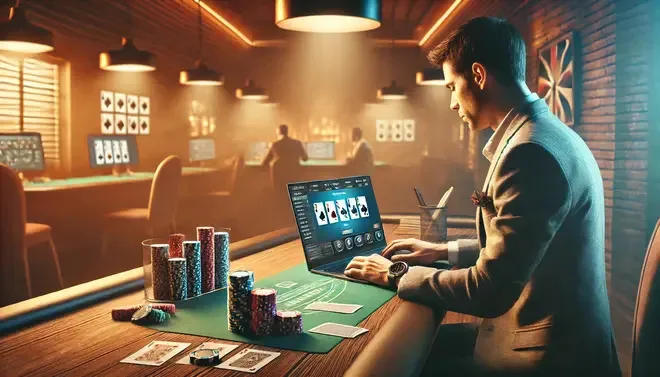How to Prepare for Your First Poker Tournament: Tips for Beginners
Entering your first poker tournament can be an exciting yet daunting experience. The allure of the game, combined with the pressure of competing against others, often leaves new players wondering how to prepare adequately. Whether you’re stepping into a live venue or participating in an online event at platforms like Casino Pasino, thorough preparation is key to making the most of your experience. This guide outlines essential steps to help you confidently approach your first poker tournament.
Why Play in a Poker Tournament?
Participating in a poker tournament offers much more than just the chance to win money. It’s a unique opportunity to immerse yourself in the thrilling atmosphere of competitive poker, improve your skills, and challenge yourself against a diverse group of players. For beginners, tournaments can be an invaluable learning experience, providing exposure to various playing styles and strategies.
Moreover, tournaments are structured in a way that gives every player a fair chance, regardless of bankroll size. The fixed buy-in ensures that all participants start with an equal stack, making it more about skill and strategy than deep pockets.
Choosing the Right Tournament
The first step in your preparation journey is selecting a tournament that aligns with your skill level and comfort zone. Poker tournaments come in various formats, including Sit & Go, multi-table tournaments (MTTs), and bounty tournaments. If you’re new to poker, starting with a low-stakes Sit & Go or a small-field MTT is a great way to ease into competitive play without feeling overwhelmed.
Pay close attention to the buy-in amount. Choose a tournament that fits comfortably within your bankroll to minimize financial pressure. Additionally, check the structure of the event—some tournaments have fast blinds that demand aggressive play, while others allow for a slower, more strategic approach.
Mastering the Basics: Rules and Strategies
Even if you’re familiar with poker, revisiting the rules and core strategies is essential before your first tournament. Understand the hierarchy of hands, the importance of position, and the concept of pot odds. Familiarize yourself with common tournament-specific strategies, such as when to play tight versus aggressive and how to manage different phases of the game.
Consider investing time in studying poker books, watching instructional videos, or following professional players’ streams. Platforms like YouTube and Twitch are treasure troves of free poker content that can provide valuable insights into tournament play.

Practice Makes Perfect
Before entering a real tournament, hone your skills by playing poker games online or with friends. Many online platforms offer freerolls, which are free-to-enter tournaments with real prizes. These are excellent for practicing in a tournament environment without financial risk.
Playing online also helps you build familiarity with different game dynamics, such as reading opponents’ tendencies and adjusting your strategy on the fly. Remember, consistent practice builds confidence, which is vital for performing well in your first tournament.
Financial Preparation: Managing Your Bankroll
One of the most critical aspects of tournament preparation is effective bankroll management. Set a strict budget for your poker activities and avoid exceeding it, even if the temptation to play higher stakes arises. Your bankroll should be seen as a tool for growth rather than something to gamble recklessly.
Allocate a specific amount for the tournament buy-in and keep additional funds for re-entries or add-ons, if applicable. This approach ensures you’re not left financially strained after the event.
Mental Preparation: Staying Focused
Poker is as much a mental game as it is about skill. The pressure, long hours, and unexpected outcomes can test even the most seasoned players. Prepare yourself mentally by setting realistic expectations for your first tournament. Understand that winning is not the only measure of success—gaining experience and learning from mistakes are equally valuable.
To stay focused during the game, ensure you’re well-rested and hydrated. Avoid distractions like social media or unrelated conversations, especially in live tournaments. Develop a routine that helps you stay calm and composed, such as deep breathing exercises or positive affirmations.
What to Bring to a Live Tournament
If you’re attending a live tournament, being prepared with the right essentials can make a big difference. Pack items like a water bottle, snacks, and a sweater in case the venue gets cold. Don’t forget your identification and any required registration details.
Comfortable clothing is also crucial, as poker tournaments can last for several hours. Avoid flashy or restrictive outfits that might distract you or others at the table.
Tournament Etiquette: Dos and Don’ts
Good etiquette is vital in poker tournaments, whether live or online. Respect the dealer and fellow players by following the rules and avoiding unnecessary delays. Don’t criticize other players’ moves or celebrate excessively after winning a hand—it’s all part of maintaining a professional and friendly environment.
Online, keep the chat respectful and avoid spamming. In live settings, be mindful of your body language, as excessive fidgeting or obvious tells can give away your hand’s strength.
After the Tournament: Reflect and Learn
Once the tournament ends, take time to reflect on your performance. Analyze your key hands, identify areas where you excelled, and pinpoint mistakes that need improvement. Many players keep a poker journal to track their progress and review strategies over time.
If you didn’t win, don’t be discouraged. Every tournament is a stepping stone in your poker journey, and even professional players experience losses. Use your first tournament as a learning experience to prepare for future events.
Preparing for your first poker tournament involves more than just understanding the game—it’s about mental readiness, strategic planning, and financial discipline. By selecting the right tournament, mastering the basics, and managing your emotions, you can turn your first tournament into an unforgettable experience. With practice and perseverance, this could be the beginning of an exciting poker journey!



